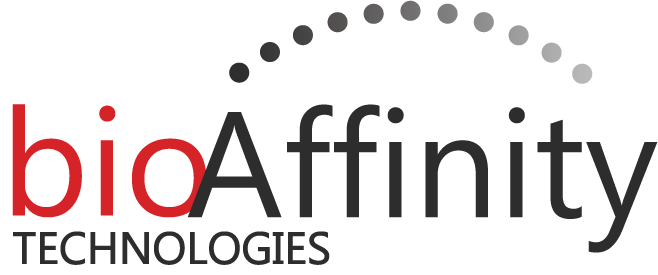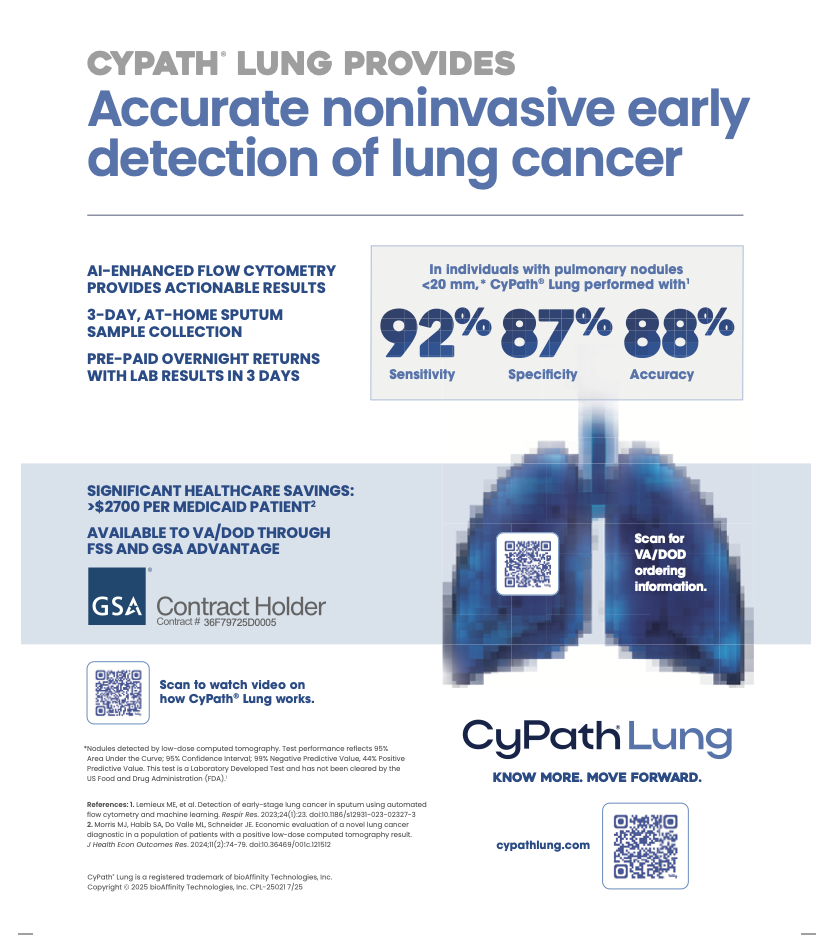APRIL 6, 2016
As published in the San Antonio Express News
By Peggy O’Hare, Staff Writer
The problem with early lung cancer screening is the unnecessary worry for the 97 percent of patients flagged with suspicious results — that ultimately turn out to be inaccurate.
San Antonio cancer diagnostics company bioAffinity Technologies Inc. thinks it may have a cure for the unusually high rate of false positives produced by CT scans, which are commonly used in early testing.
The company’s already raised $4 million from investors and is looking for up to $15 million more to bring its new laboratory test to the commercial market.
The CT scan — low-dose computed tomography commonly used as a first step in diagnosing lung cancer — accurately predicts the disease just 3 percent of the time.
bioAffinity’s CyPath® technology will be used with CT scans to more precisely pinpoint who may have the illness and should undergo further testing, CEO and President Maria Zannes said. The goal is to help patients avoid the costs and risks of unnecessary and far more invasive follow-up tests, like biopsies and bronchoscopies, she said.
The company tests a sample of sputum or mucus coughed up by a patient, who breathes into a handheld “cough assist” medical device known as the acapella that breaks up mucus in the lungs.
During the test, CyPath® stains a sample of mucus using a molecule, known as a porphyrin, which binds to or selectively incorporates into cancer cells and produces a distinct fluorescence that’s bright red. In contrast, healthy, noncancerous cells appear dull and dark.
CyPath® did not detect any red fluorescent cells in samples submitted by healthy patients for a study done in New Mexico, according to findings published in the Journal of Thoracic Oncology last year.
“Further development of this promising technology, followed by validation trials in lung cancer patients and control groups … seems both warranted and of potential future clinical value,” that article concluded.
The CyPath® test is projected to save the health care industry around $900 million annually for every 1 million patients that are cleared as healthy following suspicious CT scan results, bioAffinity estimates.
Lung cancer typically is diagnosed once it has progressed to advanced stages in a patient, making the survival rates much lower than those for breast cancer and prostate cancer.
bioAffinity’s technology aims to diagnose the illness earlier, particularly since the U.S. Preventive Services Task Force recommended in 2014 that longtime smokers between 55 and 80 years old undergo annual lung cancer screenings with low-dose CT scans, even if they don’t have any symptoms. People that age who quit smoking in the past 15 years also are urged to get annual screenings.
The CyPath® technology addresses a significant unmet medical need, Zannes said.
For every 100 patients whose CT scans indicate lung cancer, 97 of them are ultimately found not to have the illness and only three cancer patients are accurately diagnosed, according to the study published last year in the Journal of Thoracic Oncology.
“The problem with low-dose CT is that it has very, very high false positives,” Zannes said. “What we’re looking at doing is combining our tests with imaging, with low-dose CT, to much better find lung cancer early and when it’s most treatable and you have the best outcomes.”
The CyPath technology evolved out of research done at Los Alamos National Laboratory. The technology previously was held by another company, Biomoda Inc., which later was reorganized through a bankruptcy proceeding in New Mexico, Zannes said.
bioAffinity, a privately held company, later purchased that intellectual property. It set up operations in San Antonio in 2014 after entering a collaborative research agreement with the University of Texas Health Science Center here.
The company expects to launch clinical trials in the next year and hopes the CyPath® technology will become available to a limited number of certified laboratories in the next 18 months.
CyPath® eventually might be used to diagnose other types of cancers as well, Zannes said.
bioAffinity now is working with a New York investment firm to raise $12 million to $15 million in fresh financing to bring the test to the market, she said.
bioAffinity has five full-time employees, including Zannes. Three of them left the UTHSC to join the company in the last month.
Dr. Vivienne Rebel, a former associate professor who led her own research group at the health science center, joined the company as executive vice president of research and development and chief medical and science officer.
David Elzi and Jamila Sanchez, who were part of Rebel’s research group at the university, also recently joined bioAffinity. Elzi is the company’s director of basic and applied research, while Sanchez is senior manager for lung diagnostics.
“I like this technology because it’s very simple. … It’s noninvasive,” Rebel said Wednesday. “It’s much easier to actually apply this kind of technology to a much broader aspect of cancer biology.”

